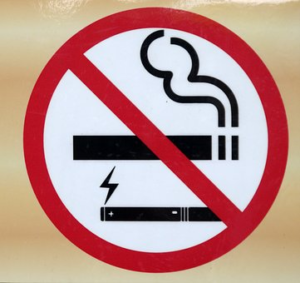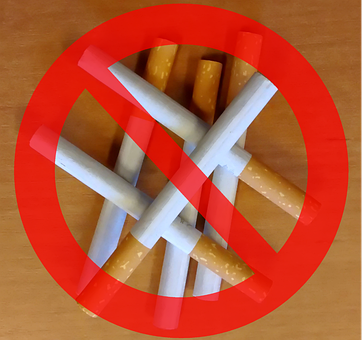Silenttest.com may earn a commission when you purchase products from companies we are affiliated with through promoting their products, at no extra cost to you. Prices are the same when buying products through an affiliate or non-affiliate link. Full Disclosure
It is important for pregnant mothers to take care of themselves when pregnant, including staying away from certain things that are likely to harm their developing embryo.
Smoking or consuming cannabis when pregnant is one of the substances that can adversely affect the health and the general development of the baby.
In this answer, read on and you will realize why using weed when pregnant is harmful, and the potential dangers to both mother and child, and also the recommended remedies for pregnant women who are still struggling to stop smoking.
Importance of quitting smoking weed when pregnant


It is exceedingly decisive for pregnant women to give up smoking as soon as possible. Fetal development and exposure to weed during pregnancy can have notable negative results on fetal development.
Exposure to weed when pregnant can cause developmental delays, low birth weight and discernible deficits in babies. In addition, Using marijuana when pregnant is associated with increased risks of stillbirth and sudden infant death syndrome (SIDS).
Comprehensibly, using weed when expecting can have critical consequences for the developing baby and the mother. This is why it is so important for pregnant women to quit smoking marijuana early enough to take charge of their baby’s health and well-being.
If you are having trouble quitting marijuana , it is important to seek help from a doctor, counselor, addiction specialist or listen to hypnosis audios and scripts that can help you quit smoking fast.
There are various accessible resources to help women during pregnancy to stop smoking cannabis and have a healthy baby and a hearty pregnancy journey.
Smoking risks for both the mother and child
While quitting smoking marijuana can be difficult, it is significantly important for expecting women to prioritize their baby’s health first. They can do this by evading all forms of marijuana.
How smoking weed affects fetal development


Smoking marijuana when pregnant can adversely affect the developing fetus. Tetrahydrocannabinol (THC), the main psychoactive ingredient in cannabis , and can cross through the placenta and reach the fetus’ bloodstream. This is likely to affect the usual maturing of the baby and can lead to a variety of health issues.
1. Low Birth Weight: Babies who are born to mothers who smoke weed when pregnant are more presumably to have lower birth weight than babies born to mothers who do not smoke.
Low birth weight can then increase the possibilities of health problems to the born baby and can extend to their later life.
2.Impaired Brain Development: The brain continues to develop during pregnancy and being exposed to THC can disrupt this process.
Studies indicate that babies born to mothers who smoked when pregnant may have lower IQ and other perceptual deficits.
3.Behavioral issues: babies born to mothers who smoked weed during pregnancy have more possibilities of showing behavioral issues, such as impulsivity and hyperactivity.
4.Breathing Problems: Smoking objects when expecting can increase the probability of breathing problems to the baby.
Typically, smoking weed can damage developing lungs, and can make it difficult for the baby to breathe even after birth..
5.Increased Risk of Stillbirth: Smoking weed is associated with increase in stillbirth, although the precise mechanisms underlying this association are not yet completely understood.
How smoking weed affects mother’s health for smoking when pregnant


Smoking during pregnancy can seriously endanger the health of the mother and the development of the fetus.
Here are some potential maternal health risks:
1.Increased risk of miscarriage: Smoking during pregnancy increases the risk of miscarriage and stillbirth.
2.Ectopic pregnancy: Smoking during pregnancy can increase the risk of an ectopic pregnancy, in which a fertilized egg implants outside the uterus.
3.Placental Problems: Smoking can lead to placental problems such as abrupt placenta or placenta previa, which can cause bleeding during pregnancy and increase the risk of preterm birth.
4.Prematurity: Smoking increases the risk of preterm birth, which can lead to respiratory problems, cerebral palsy, and other health problems in the newborn.
5. Low birth weight: Smoking during pregnancy can result in low birth weight for the baby, increasing the risk of infant mortality and health problems later in life.
6.Maternal mortality: Women who smoke during pregnancy have an increased risk of maternal mortality, i. H. Death related to pregnancy or childbirth.
7.Cardiovascular Disease: There is increase of risk of cardiovascular disease, which can lead to heart attack, stroke, and other health problems later in life.
It is significantly important that pregnant women quit smoking for their health and that of the developing fetus.
Tips for quitting smoking weed while pregnant


It is important to note that it is highly recommended that you consult your doctor before deciding to stop smoking weed or any substance during pregnancy.
With that in mind, here are some general tips on how to quit smoking weed when pregnant:
- Set a Quit Date
Pick a specific day to quit and stick to it. Write down the release date and keep it visible to remind you of your ultimate goal.
- Seek Support
Tell your family, partner and friends that you are quitting and ask for their support. Consider joining a support group for pregnant women trying to quit smoking.
- Avoid Triggers
Identify the situations or people that trigger your desire for weed and avoid them as much as possible. For example, if you usually smoke weed after lunch, try going for a walk instead. Find
- Alternatives
Look for healthy ways to deal with anxiety or stress, including: meditation, exercise or deep breathing. You can also try drinking water or eating healthy foods like fruits and vegetables if you feel like it.
- Stay Positive
Remember that quitting smoking is the best thing you can do for your health and that of your growing child. Focus on the positive changes you will experience, like better lung function and better sleep.
- Get professional help if you need it
If you’re having trouble quitting smoking on your own, talk to your doctor or counselor who can give you additional support and advice. They may also recommend medications or other treatments that can help you stop smoking safely.
how to seek medical advice if struggling to quit smoking while pregnant


If you’re having trouble quitting smoking while pregnant, seeing a doctor is essential for your health and well-being and that of your baby.
Here are some steps you can take to seek medical advice:
1.Talk to your obstetrician or midwife: Your obstetrician or midwife is the best source for advice on quitting smoking during pregnancy. They can provide information about the risks of smoking during pregnancy and advice on how to quit smoking.
2. Look for a Smoking Cessation Program: Many hospitals and clinics offer smoking cessation programs for pregnant women. These programs can provide you with support and advice to help you quit smoking.
3.Consult a smoking cessation specialist: A smoking cessation specialist can give you expert advice on how to quit smoking, including the use of nicotine replacement therapy or prescribed medication.
4.Contact Helpline: There are many helplines for pregnant women who are having trouble quitting smoking. These hotlines can provide support and advice on how to quit smoking.
Remember that quitting smoking is one of the best things you can do for your health and that of your baby.
Get advice and support from a doctor to quit smoking during pregnancy.
Lifestyle Modifications to Reduce Cravings During Pregnancy


If you are pregnant and experiencing urges to smoke, it is important to remember that quitting smoking is one of the best things you can do for yourself, your health and that of your baby.
Check out these lifestyle changes that you can make to reduce cravings for smoking during pregnancy:
Avoid Triggers: Identify your smoking triggers and avoid them. For example, if you usually smoke after a meal, try going for a walk instead.
Stay Active: Exercise can help reduce cravings and improve mood. Try to incorporate moderate exercise, like walking or prenatal yoga, into your daily routine.
Stay Hydrated: Drinking plenty of water can help reduce your appetite and flush toxins from your body.
Get Help: Turn to friends, family, or a support group for encouragement and strength. Your doctor can also provide you with resources and support.
Practice relaxation techniques: Deep breathing, meditation, or progressive muscle relaxation can help manage stress and reduce appetite.
Find alternatives: try nicotine patches, inhalers or chewing gum, or find a healthy substitute for your smoking habits, like chewing a gum or fruit and vegetable snacks.
Be cautious of what you use while pregnant to prevent causing more harm. An inhaler like FUM essential oils inhaler is great for anyone who is trying to quit smoking. With expectant women, always consult with your physician before using it.
Using alternatives when quitting smoking comes out well when also combined with a hypnosis online program which helps you fight the side effects that come with quitting such as stress, anxiety, lack of enough sleep and the list is not the limit.
Remember that quitting smoking is a process that can take time and many attempts. Be good to yourself and celebrate every little win along the way.
With the right support and lifestyle changes, you can be successful in quitting smoking and protecting your and your baby’s health.
how long does it takes for weed to get out of your body after quitting smoking


It takes time for weed to completely leave your body after quitting smoking .THC can remain detectable in the body for weeks or even months after last consumption, depending on the factors
Frequency of use: the more weed you smoked during pregnancy, the longer it can take time for it to leave your body.
Dose : The more marijuana you smoke, the longer it takes for it to leave your body.
Uses: Various methods of consuming marijuana, such as smoking it or eating edible foods, can affect the time it takes for it to leave the body.
Body Weight: People with heavier body weight tend to store more THC in adipose tissue, which can take longer to metabolize and eliminate.
Metabolism: Everyone’s metabolism is different, which can affect how quickly THC is processed and cleared from the body.
Hydration: Drinking plenty of water can help flush THC from your body faster.
Exercise: Participating in physical activity can also speed up the elimination of THC from the body.
Final Verdict
Pregnant women are advised not to use marijuana as it can adversely affect fetal development and lead to complications during pregnancy and childbirth.
Prenatal exposure to marijuana may increase the risk of low birth weight, developmental delay, prematurity, and behavioral problems in the newborn.
It is therefore recommended to stop smoking weed during pregnancy to ensure the health and well-being of both mother and child.
If you’re having trouble quitting smoking, you can ask your doctor or a professional addiction counselor for help. They can give you resources and advice on how to quit smoking and stay drug-free during pregnancy.
